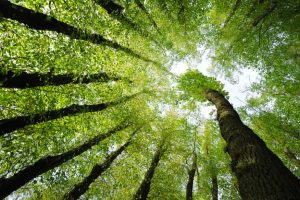By Lindenberg Junior
 During the past decade, 182 countries became part of the “Convention on bio-diversity” (which in 1992 was one of the greatest achievements in Rio de Janeiro). Researches from the “red book” of the World Conservation Union reveal at the time, that 13% of fishes, 11% of mammals, 10% of amphibians, 8% of reptiles, and 4% of birds, were in risk of extinction. A research conducted by the American Museum of Natural History verified that 7 in 10 biologists believe that the world today is undergoing the most accelerated mass extinction of living beings of the past 4.5 billion years of the planets history.
During the past decade, 182 countries became part of the “Convention on bio-diversity” (which in 1992 was one of the greatest achievements in Rio de Janeiro). Researches from the “red book” of the World Conservation Union reveal at the time, that 13% of fishes, 11% of mammals, 10% of amphibians, 8% of reptiles, and 4% of birds, were in risk of extinction. A research conducted by the American Museum of Natural History verified that 7 in 10 biologists believe that the world today is undergoing the most accelerated mass extinction of living beings of the past 4.5 billion years of the planets history.
Only after 1972, as a result of the “Stockholm conference”, has mankind started asking about the Greek terminology “oikos” that derives from ecology – meaning house, the blue planet where we live. Human society began searching for understanding and some people became aware of it! the importance of uniting in favor of nature and the environment. We all live in the same planet and even if we do not like it or we have our differences and intolerances, we must unite, otherwise mother nature ensures that the life of this “house” will die, and take us all along.
Although 2/3 of the planet is water, only a fraction of it is drinkable; this “commodity” is becoming scarce in many countries. The United Nations Program for the Environment foresees that 2/3 of the world population will be living under conditions of water scarcity by 2025. Nowadays, about 40% of the world food production depends on irrigation.

The carbon emissions in the United States which is the largest in the world, with 24.5% of the total grew 18% relative to 10 years ago. The drivers in the U.S. consume 43% of the worlds gasoline in order to transport domestically only 5% of the world population. For the 21st century, it is estimated a decline in oil reserves, which will require adjustments, decrease in consumption and radical changes, under the threat of collapsing economic, social and political systems.
In the Amazon, each year, 18 thousand acres of rain forest is destroyed. This is where the planets “lungs” are situated; it is sad and disturbing to find out what is happening. With intelligence and mainly with the commitment of public and ecological policies, the biodiversity of the Amazon must be thought of as a solution to enviable life in the region, in the continent and even in the world.
By the way, what is the value of products and services of the tropical forests biodiversity for the multibillion-dollar pharmaceutical and biotechnological industries? And what is the value of the climate, soil and levels of insulation for the agribusiness?
The principles that enabled the long life and duration of ancient civilizations like the Egyptian and Greek include useful notions for sustainable future civilizations. Among them are the behavior of low impact and protection of the environment. Those principles are against everything that causes suffering to mankind and nature.
It is a basic truth that nature was created before mankind. It is our duty to make this planet a better place and to get closer to Nature’s God. The environmental question put us all the same boat. And this boat will not sink if we all row. There is no distinction between white and black, beauty or not, young and old, rich or poor!

